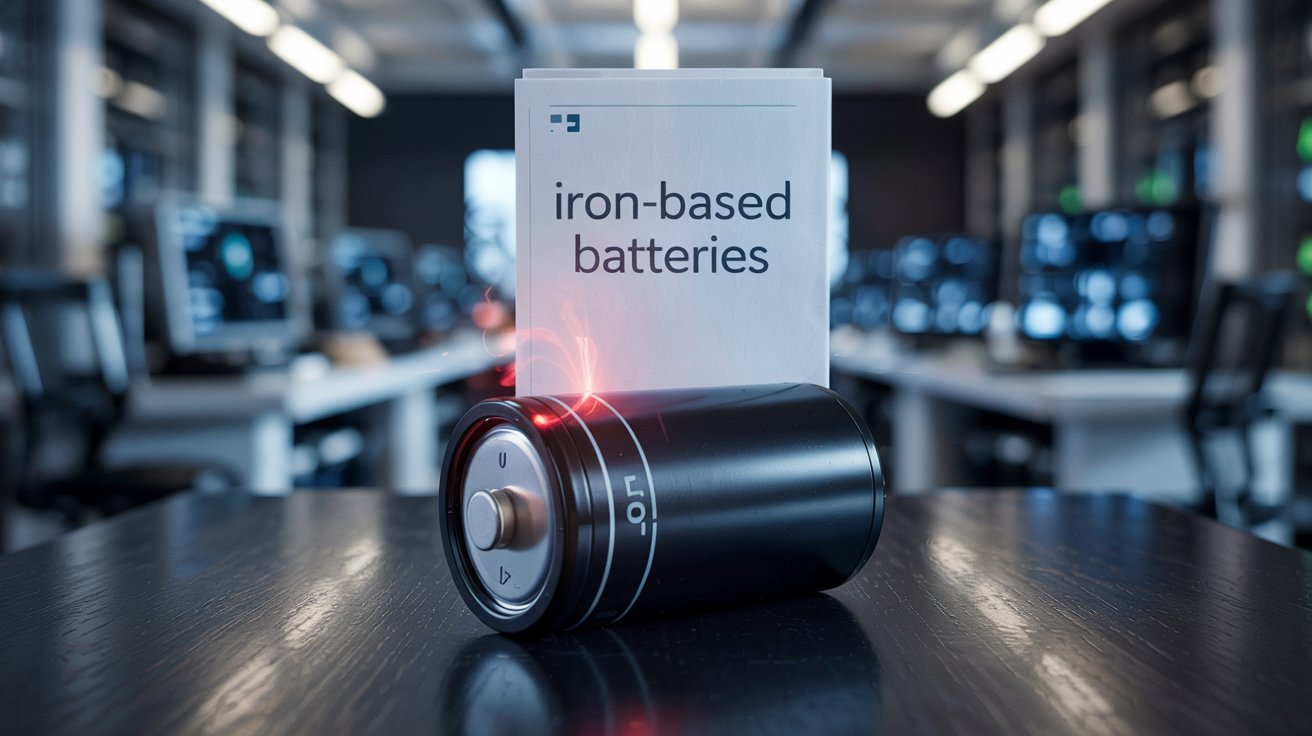American Scientists Develop Iron-Based Greener Lithium-Ion Batteries
The future of battery technology is undergoing a revolutionary shift as American scientists have successfully developed iron-based lithium-ion batteries, promising a greener, more cost-effective alternative to conventional energy storage solutions. This breakthrough is set to transform industries dependent on lithium-ion batteries, including electric vehicles (EVs), renewable energy storage, and consumer electronics.
The Need for Sustainable Battery Solutions: Why Is This Important?
As the world moves toward renewable energy and electric vehicles, the demand for lithium-ion batteries has surged. However, traditional batteries rely on rare and expensive materials like cobalt and nickel. These metals are not only costly but also pose significant environmental and ethical concerns due to mining practices. Iron, on the other hand, is one of the most abundant and affordable materials available. By using iron in lithium-ion batteries, scientists aim to create a sustainable, cost-effective, and eco-friendly alternative.
Table: Comparing Traditional Lithium-Ion Batteries vs. Iron-Based Batteries
| Feature | Traditional Lithium-Ion (Cobalt/Nickel) | Iron-Based Lithium-Ion |
|---|---|---|
| Material Cost | High (due to rare metals) | Low (iron is abundant) |
| Environmental Impact | High (pollution & mining damage) | Low (eco-friendly) |
| Safety | Moderate (risk of overheating) | High (less heat, safer) |
| Scalability | Limited by metal scarcity | High (iron is widely available) |
How Iron-Based Lithium-Ion Batteries Work: The Science Behind It
Researchers at Oregon State University have successfully integrated iron as a cathode material in lithium-ion batteries. The cathode is a crucial component that determines the battery’s efficiency and longevity. Unlike traditional lithium-ion batteries that depend on cobalt and nickel, iron-based cathodes offer similar or even better energy efficiency while being more sustainable and cost-effective.
Additionally, scientists at Georgia Tech introduced an advanced iron chloride (FeCl₃) cathode, enhancing battery performance by operating at higher voltages. This innovation means that future batteries could last longer, charge faster, and perform better in extreme conditions, making them perfect for electric vehicles and energy storage solutions.
Advantages of Iron-Based Batteries: Why Should We Care?
1. Lower Cost and Greater Availability
- Iron is one of the most abundant metals on Earth, reducing dependence on scarce materials like cobalt and nickel.
- Production costs are significantly lower, making batteries more affordable for consumers and businesses alike.
- Wider adoption of iron-based batteries could lead to cheaper electric vehicles and energy storage solutions.
2. Environmental Benefits
- Mining cobalt and nickel contributes to deforestation, pollution, and unethical labor practices. Switching to iron-based batteries minimizes these negative effects.
- Iron-based batteries are safer, producing less heat and reducing the risk of combustion, a critical advantage for electric vehicles and large-scale energy storage.
3. Improved Performance for Electric Vehicles & Renewable Energy Storage
- Iron-based cathodes have shown promising results in energy efficiency and longevity, making them ideal for long-lasting applications.
- Vehicles using iron-based batteries could achieve faster charging times and extended range at a lower cost.
- Renewable energy storage solutions (such as solar and wind power) can benefit from iron-based batteries, ensuring reliable, sustainable energy storage.
How Iron-Based Batteries Benefit Different Industries
Iron-Based Batteries
│
┌─────────────┬──────────────┬───────────────┐
│ │ │ │
Electric Renewable Consumer Industrial
Vehicles Energy Storage Electronics Applications
│ │ │ │
Lower EV Better solar Longer battery Lower cost
prices & wind power life for for storage
efficiency devices systemsThe Future of Iron-Based Lithium-Ion Batteries: What’s Next?
While iron-based batteries offer numerous advantages, scientists are still optimizing their energy storage efficiency to match or surpass current lithium-ion technology. However, with increasing research investments and breakthroughs in material science, iron-based batteries could soon dominate the battery market. This shift will not only lower costs but also accelerate the global transition to clean and sustainable energy solutions.
Conclusion: Why This Innovation Matters
Iron-based lithium-ion batteries represent a major leap forward in sustainable and cost-effective energy storage. As researchers continue refining the technology, these batteries could replace cobalt- and nickel-based versions, reducing costs and minimizing environmental damage. With the rapid push for clean energy, this innovation could drive the widespread adoption of affordable electric vehicles and renewable energy storage systems.
By transitioning to iron-based lithium-ion batteries, we move closer to a future where green energy is both practical and accessible to everyone. With continued research and industry adoption, iron-based batteries have the potential to reshape the future of energy storage, benefiting industries, consumers, and the environment alike.
[USnewsSphere.com / acs]





